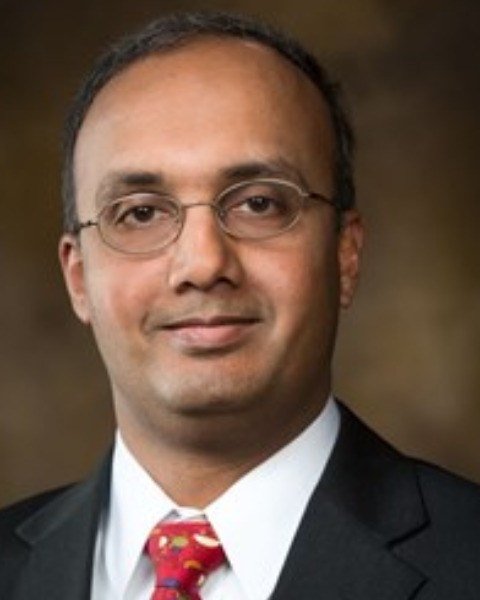Synergizing Research and Cultural Excellence
The Power of Education and Innovation
Promoting service learning, cultural competency and healthcare innovations through project-based learning approaches
Thursday, October 24, 2024
9:30 AM - 9:45 AM EST
Location: Room 332

Raj R. Rao, PhD (he/him/his)
Professor
University of Arkansas
Fayetteville, Arkansas, United States
Presenting Author(s)
Introduction: As a discipline, biomedical engineering is uniquely positioned to educate and train future diverse biomedical engineers and actively promote experiential learning opportunities at all levels. Curricular innovations and training opportunities can thus be envisioned that inform, inspire and promote creativity and innovation. Bridging intellectual capital and promoting partnerships across local and global communities presents a unique opportunity to maximize the impact of biomedical engineering on human health. To effectively solve global health issues and address health disparities, people from different backgrounds must come together to develop innovative healthcare solutions. Acknowledging the interdependence of our world, the Arkansas Global Changemakers initiative and the “Biomedical Innovations for Global Impact” course connects participating students with a global and local network of students, faculty, community partners, and mentors, and invites them to develop viable solutions to pressing health care challenges in different locations around the world. With partners in India, Panama and Malawi, we demonstrate that project-based learning approaches are effective at addressing global healthcare needs through biomedical innovations and contribute to student lifelong learning, enhanced cultural competencies and training the next generation of biomedical engineers who can champion grand challenges in human health with empathy and inclusion.
Materials and
Methods: The course provides students from different countries and different disciplines to focus on specific problems triggered by healthcare challenges that affect local and global communities. Specifically, by fostering an open-source global dialogue between change makers and innovators, the process promotes empathy, solidarity, and transnational, multidisciplinary, multi-sector collaboration, making sure common problems are solved with common solutions. The analysis of the effectiveness of the process was conducted through surveys, reflection pieces, idea validation, presentations and reports. Four themes that were assessed included personal growth, professional development, educational experience, and cultural understanding.
Results, Conclusions, and Discussions: Results from the study provide insights on the effectiveness of project-based learning approaches in addressing global healthcare needs. The importance of understanding the process of product development, implementation, viability and scalability based on socio-economic and cultural variables was determined to be meaningful. The implementation of the Biomedical Innovations for Global Impact course serves as an example of how cross-cultural, global collaborations in a service-learning context can benefit a range of learners and empower entrepreneurs to work together to generate real-world solutions to address healthcare challenges.
Acknowledgements (Optional): This work was supported with funding from the National Institute of Health NIH R25 grant1R25EB029377. This study was reviewed by the University’s Institutional Review Board (protocol #: 2209420237A001) and was determined to be exempt.
